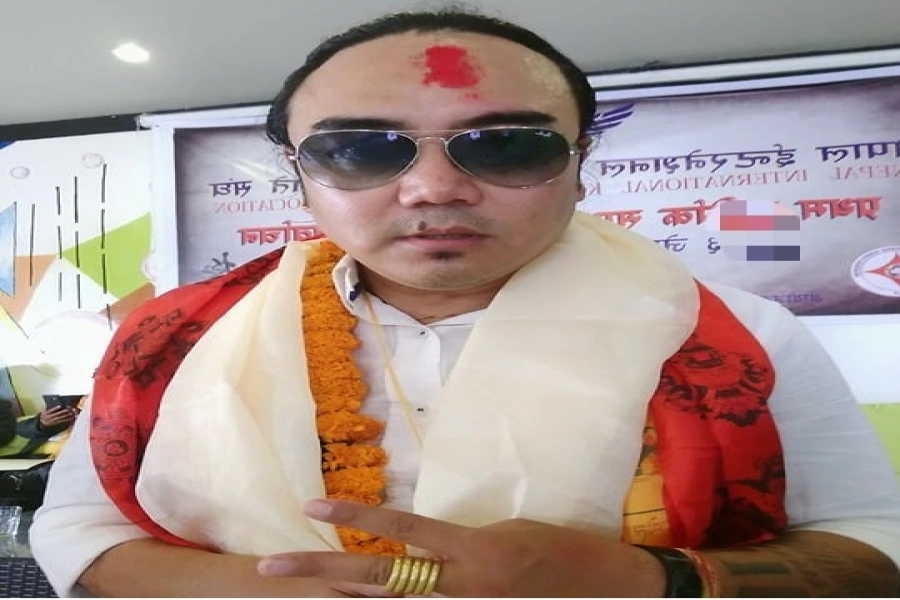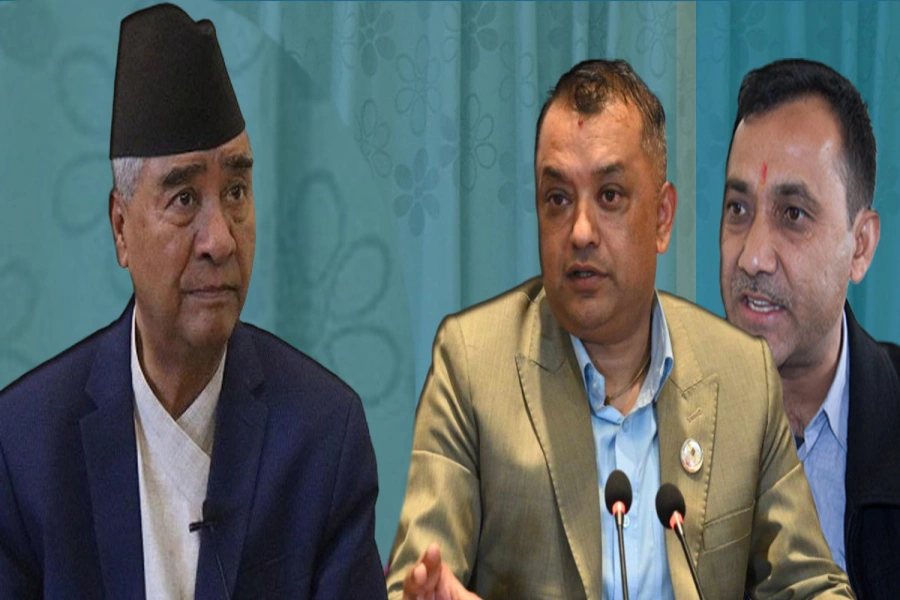While the case is still sub-judice in court, Maina’s mother, Devi Sunuwar, continues her fight for justice, which means the right to cremate the last remains of her daughter—a bagful of bones which are still dumped in some corner of the Tribhuvan University Teaching Hospital, Kathmandu. Generally, a criminal case is judicially processed and decided after facts and perpetrators are duly ascertained. However, it is strange that the alleged perpetrators in Maina’s case could not be produced for the judicial proceedings even after the court issued arrest warrants in their name. The UN Peacekeeping mission vetted out one of the alleged perpetrators from its Chad venture, but the government and the authorities concerned remained comatose. Thus, Maina’s case remains a challenge to (and indicates) the effectiveness of the overall criminal justice system in Nepal
The alleged) perpetrator is still under the custody of the army, yet the police is unable to produce him before the court—ostensibly owing to the non-cooperation by the Nepal Army, which cites either the worn-out arguments of ‘double jeopardy’ on the basis of the decision of the Military Tribunal (MT) or the illogical logic of ‘crimes committed under battlefield context’.
The Supreme Court (SC) has already clarified that the issue of civilian murder at the hands of state security apparatuses falls under the jurisdiction of regular courts and such cases must be processed via regular criminal justice system. Also, the section 66 (1) of the Army Act-2063 prescribes in clear terms that prosecution vis-à-vis rape and murder of civilians by the members of Nepal Army should fall under the jurisdiction of the regular courts. In this context, the army continues to make a mockery of justice and a glaringly blatant contempt of the court.
It is amply clear that since the act of murdering someone is an offence as per section 1 of the Chapter on Homicide (Country Code), no extraordinary rights can be invoked in prosecuting the convicts pursuant to the current criminal law.
Deciding on the murder case of Maina, the SC had said in its September 18, 2007 mandamus: “The received paper, page 9, of the Military Tribunal’s adjudication dated August 18, 2005 has… clearly stated that Maina Sunuwar’s death [was the result of] wrong process and techniques of Nepal Army [inquisition marked by] carelessness, fancy, and irrationality. If the condition of appropriate investigation is alive, then the investigation process should be made responsible and effective regarding the murder case which is also a crime… officials should be prosecuted on the basis of legal provisions under the Public Lawsuit Act 2049 BS. A mandamus has been issued in the name of defendants, the SC view continued, as there was no effective investigation for a long time following the filing of FIR on Nov. 13, 2005. The court thus ordered that “proper investigation be conducted within three months of the issuance of this order”. This was possibly the first Supreme Court directive to specify a timeframe for the investigation process.
Interestingly, the Supreme Court directive to the police to initiate immediate investigations renders the argument of double jeopardy invalid. Moreover, the logic of the battleground context is as ludicrous as it is breathtakingly naive. What has battleground got anything to do with the case when Maina was arrested from her house in the wee hours and mercilessly killed by administrating electric shocks inside an army facility? It is to be noted that international humanitarian law prohibits even the inhumane treatment of hors de combat. The victim’s right to justice is the most fundamental of rights, and, therefore, should be ensured by the state. The government’s indifference to justice in this case is unacceptable; it gives the perpetrators who enjoy impunity a free rein.
Even the logic that the to-be-formed transitional justice mechanism will address the cases of conflict is not wholesome. Justice delayed is justice denied. This, even as the SC has established that the crimes defined by the current legal provisions should be prosecuted within the jurisdiction of regular criminal justice system. It has also established a precedent in the case of Punimaya Lama vs District Police Office (DPO), Kavre deciding that until the formation of transitional justice mechanism like TRC and until the identification of its jurisdiction, the time dating back to conflict should be addressed by the regular justice system, and that it is the duty of the police to duly register First Information Report, a formal complaint, and conduct proper investigation.
Thus even while there has been widespread concern and interest surrounding Maina’s murder case, the victim family has been deprived of appropriate and effective legal remedy; there are many such families. The conflict has victimized a large chunk of Nepali population but the fruits of justice are still being held in abeyance; the justice is getting ever more elusive as the culture of impunity is being consolidated. The bitter is: The state has failed to prosecute even a single perpetrator of human rights violations from the conflict. Such inactivity of the state not only deprives its people of social justice but is also not conducive for sustainable peace in the country. Why doesn’t the step in to address this kind of impunity? Doesn’t it have any responsibility towards its nationals? Does it understand that people are cipher-sovereigns until the state ensures that their rights are respected, promoted and protected?
The writer is an advocate and human rights campaigner
Cabinet meeting held in abeyance for Monday



































